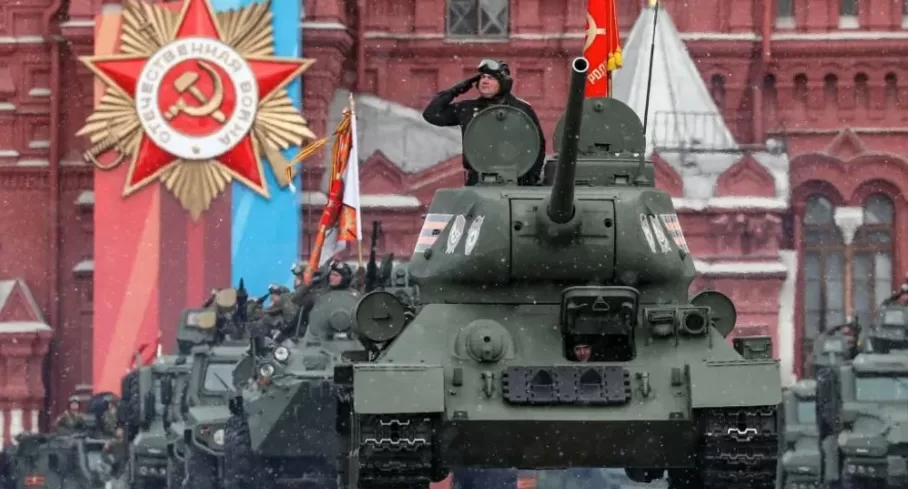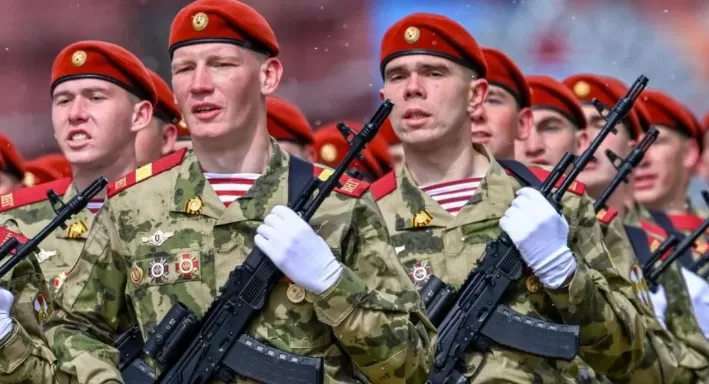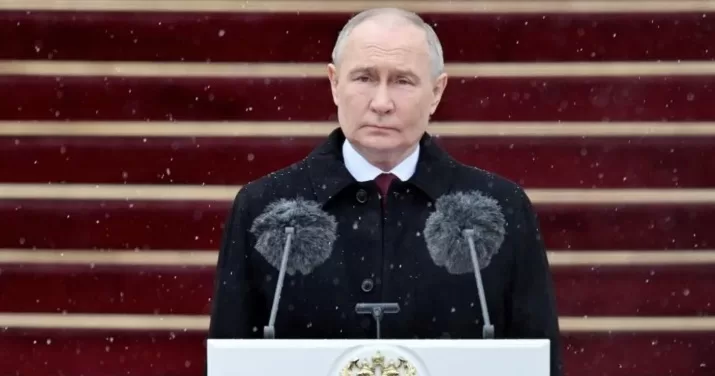
The annual Red Square military parade, held to commemorate Victory Day, felt distinctly different this year. Amidst a spring snowstorm, 9,000 people marched across the square, a notably smaller number compared to previous years before Russia’s invasion of Ukraine. The display of military hardware was also scaled back, with only one T-34 tank on show. However, references to Russia’s ongoing war in Ukraine were abundant, with soldiers who had fought in the conflict participating in the parade.
In his address, President Vladimir Putin hailed the soldiers as “heroes” and framed the ongoing conflict as a continuation of Russia’s historical struggles against external threats. This narrative is a common theme in Russia, where the idea of victory is deeply ingrained and often weaponized to justify current actions.
Putin also issued a warning to Western nations, including the UK and France, which have been accused of threatening Russia. The warning was accompanied by nuclear sabre-rattling, with Putin emphasizing that Russia’s strategic forces are always on combat alert.
Under Putin’s leadership, Victory Day has become Russia’s most important secular holiday, commemorating not only the Soviet defeat of Nazi Germany but also the immense human cost of that victory. However, the holiday has taken on a new significance, with the authorities using it to justify the present conflict.
In a disturbing shift, the Russian public is being conditioned to view war as a natural and inevitable part of human nature. This normalization of war is particularly concerning in a country that has suffered greatly from conflicts in the past. The phrase “No more war,” once a common expression in Russia, has given way to a resigned acceptance of war as a constant presence.

The unveiling of a war memorial in a small town outside Moscow drove this point home. A local official told the gathered crowd, “There were always wars. And there will always be wars. It’s human nature.” This sentiment is a far cry from the pacifist leanings of former Soviet leader Mikhail Gorbachev, who was once told by Russians, “We can put up with all kinds of privations. Just so long as there’s no more war.”
The normalization of war in Russia is a troubling development, and one that has far-reaching implications for the country and the world at large.
